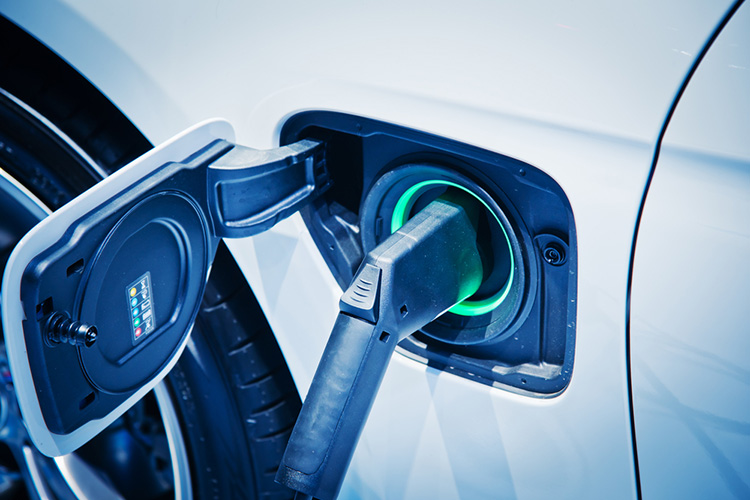
Despite the fact that the Indian government has backtracked on its 2030 electric vehicle mission, a number of automobile manufacturers in the country are pushing forward towards an all-electric future and have started releasing a slew of electric and hybrid vehicles in the country. While the list of electric vehicles is still a bit too short with just two cars currently available in the market, there are quite a few options to choose from when it comes to hybrids vehicles. If you’re currently in the market for an electric car or are considering it as a viable option for a future purchase, here’s a list of all the electric cars available in India, along with a few electric vehicles that are expected to be launched soon and a list of all the hybrid vehicles you can buy right now:
Electric Cars Available in India (January 2020)
1. Hyundai Kona
Hyundai has launched its Kona Electric SUV in India at an ex-showroom price of Rs. 25.30 lakh. Hyundai Kona is shaping to be India’s first real electric SUV and the company is marketing it as such. Talking about the specs, Hyundai Kona is powered by a 39.2 kWh battery pack with liquid-cooling technology that has an ARAI-certified range of 452 Km on a single charge. It offers a peak power of 134 bhp, max torque of 395 Nm, and does 0-100 kmph in 9.7 seconds. The car offers different driving modes including Eco+, Eco, Comfort, and Sport.
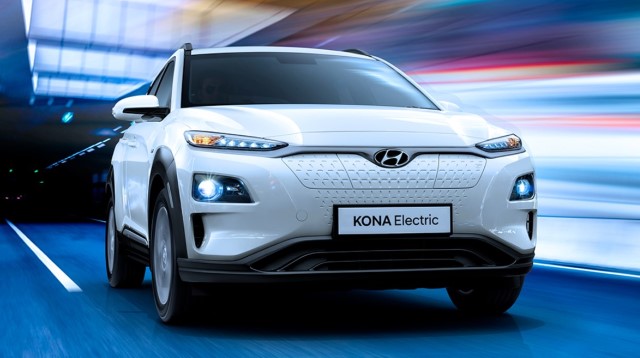
When it comes to charging, Hyundai Kona offers a really fast charge time. The car can be charged in 6 hours using the bundled 7 kWh charger. There’s also a DC fast charger, which can charge the SUV up to 80 percent in just 57 minutes. When it comes to design, the Hyundai Kona doesn’t disappoint much. It keeps the basic SUV design with small modifications to make it look more futuristic. The interior of the car is pretty minimalist and looks modern.
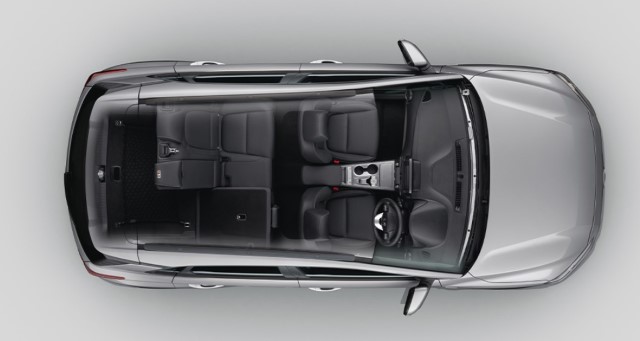
Interested buyers can get this car via select Hyundai dealership. At launch, the car will be sold through 15 select dealerships in 11 cities around the country. The car is being sold in India as a CBU (completely built unit) import, that means the car is totally assembled outside the country and imported for sale here. That’s why it’s price a little on the higher side as CBU cars have higher import duty. Nevertheless, the Hyundai Kona is the first electric car which has piqued the interest of many buyers in India and I have no doubt it will sell in good numbers.
Price: Rs. 23.50 lakhs (ex-showroom)
2. Tata Tigor EV
While you might spot a Tata Tigor Electric in the wild today, the company is currently only selling the electric variant of the Tigor directly to the state-run Energy Efficiency Service Limited (EESL). However, recent reports suggest that the company is mulling over plans to bring it to private buyers sometime later in 2019, which is great news for the electric vehicle ecosystem in the country.

That said, I don’t have much hope for this car as it’s specs are pretty underwhelming. It is powered by a 72V, 3-Phase AC induction motor which brings about 41 PS and 105 Nm of power. The car can go from 0-60 kmph in 12s and has a top speed of 80 kmph. The car has an expected range of 142 km thanks to the smaller 16.2 kWh battery. The battery can be charged to 80 per cent of its capacity in six hours via a normal charger or in 1.5 hours by a fast charger.
Tata Tigor EV is available in two variants; the Tigor EV XM and Tigor EV XT. There are three colour options to choose from (white, blue, and silver). The car also packs the basic safety features including dual front airbags, ABS, rear parking sensors, and more. It is priced between Rs 9.99 lakh and Rs 10.09 lakh (inclusive of incentives ex-showroom Delhi).
Price: Rs. 9.99-10.9 lakh (ex-showroom Delhi)
3. Mahindra e2o Plus
The Mahindra e2o Plus, which is the direct successor of yesteryear’s Reva-i, is a compact four-door all electric hatchback which is powered by a 19KW motor that draws juice from a 48-cell 11KWhr lithium-ion battery. Mahindra Electric claims that the car can run 110kms on a single charge, with the top-end variant boasting a range of 140kms, thanks to a bigger 15KWhr lithium-ion battery. In order to combat range anxiety, Mahindra has also included a patented ‘Revive’ feature which will give users an additional 5km range in case they run out of charge in the middle of a commute.
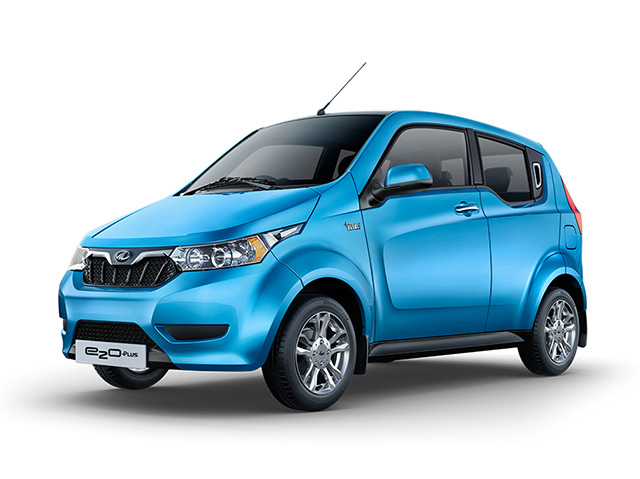
The battery pack on the Mahindra e2o Plus takes about 6 hours to charge to 100 percent for the base variant, while the top-end variant with the bigger battery will take about 7 hours and 20 minutes to reach 100 percent, using the included 3KW single phase 16A charger. Mahindra also offers a 10KW 3 phase 32A fast charger, which can be purchased separately with the top-end variant, that charges the battery to 100 percent in just over an hour and a half. The Mahindra e2o Plus is available in three variants – P4, P6, and P8 – with the top-end variants featuring an Android-powered touch screen console for entertainment and navigation. The car can accelerate from 0-60kmph in 14.1 seconds and has a top speed of 80kmph.
Price: Rs. 7.57-11.27 lakh (ex-showroom Delhi)
4. Mahindra eVerito
The Mahindra eVerito is an all-electric version of the company’s four-door Verito sedan which is powered by a 31KW motor and a 69-cell 13.91KWhr lithium-ion battery. Much like the e2o Plus, the eVerito boasts of a 110km range, with the top-end variant going up to 140kms due to the bigger 18.55KWhr lithium-ion battery. Mahindra has also included the patented ‘Revive’ feature with the eVerioto, however, in this case the company offers an addition 8km range in case the driver runs out of juice in the middle of a commute.
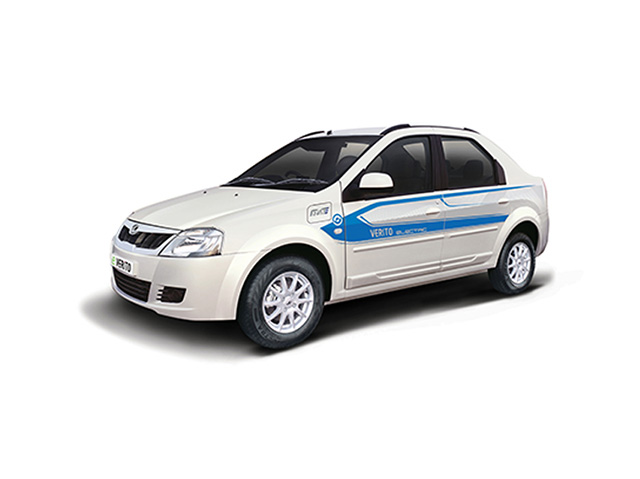
Charging the 13.91KWhr battery packs takes around 8 hours and 30 minutes using the included charger, with the bigger 18.55KWhr battery taking around 11 hours and 30 minutes to charge. With the fast charger that’s sold separately, you’ll be able to charge up to 80 percent in just under one and a half hours for the regular battery and one and a half hours for the bigger battery. The Mahindra eVerito is currently available in four variants – C2, D2, D4, and D6 – with all but the lowest variant featuring the bigger battery pack. The electric sedan can accelerate from 0-60kmph in 10.7 seconds and has a top speed of 86kmph.
Price: Rs. 9.5-10 lakh (ex-showroom Delhi)
Upcoming Electric Cars in India
1. Audi A3 e-tron
The Audi A3 e-tron is still being called as a concept car however many sources have revealed that this car will be coming to India sooner rather than later. According to Audi’s website, the car will be able to accelerate from 0 to 100 km/h in 4.5 seconds and produces up to 320 kW of power (boosting up to 370 kW). It will also have a range of 500 kilometers making this perfect for everyday use and more.
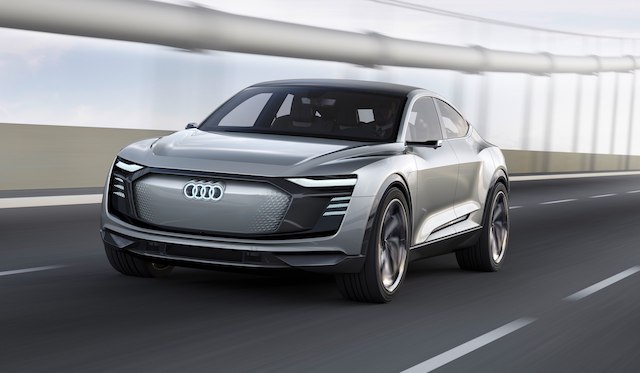
The Audi e-tron Sportback also looks breathtakingly beautiful. With its extremely sporty lines, expansive panels and a tapering rear, the car is a beauty to behold. Other highlights include illuminated rings and virtual side mirrors. It looks powerful as well as elegant. Just click on the link below take a look at this car in all its beauty. You will be blown away. The car is expected to launch in September 2020 for an expected price of around Rs. 1.5 crorer.
2. Mercedes-Benz EQC
Mercedes-Benz EQC is the company’s answer to the Audio-eTron that we have discussed above. I think Mercedes has a winner on its hands here as the car not only looks good but is also bringing quite powerful specs. First of all, Mercedes is claiming a range of 445-471 kms which is really good. The car also brings a 4Matic (fully variable 4-wheel drive) which will result in both better power and better control. The EQC make a combined 402 bhp of peak power and 765 Nm of peak torque which means the car is going to be super fast.
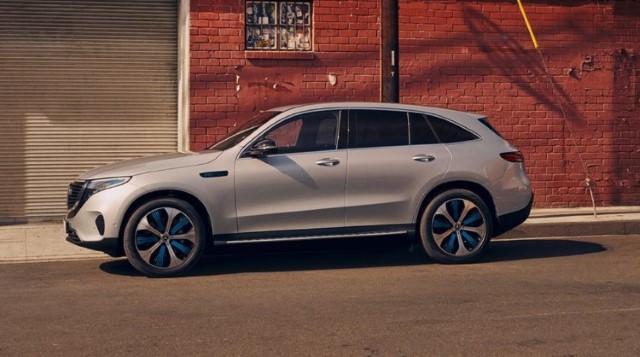
As per the company the Mercedes-Benz EQC can go from 0 to 100 km/h in just 5.1 seconds. This is great especially when you consider the fact that the Mercedes-Benz EQC is company’s first ever electric car to go under mass production. Talking about the looks, I mean just look at the pictures. The car looks absolutely gorgeous. Both the interior and exterior of the car are just amazing. You can see more pictures of the car by clicking the link below. The Mercedes-Benz EQC is set to be available by the end of the year in India with prices starting at around 65 lakh.

3. Tata Nano Electric
Earlier this month reports revealed that Tata Motors is supplying Nano body shells to Jayem Automobiles which has sparked speculations that the companies will soon launch an electric version of the popular people’s car. The Tata Nano Electric, which is also being referred to as the Jayem Neo, is expected to start shipping sometime later this year, however, the first batch of 400 cars will be delivered to cab aggregator Ola on the day of launch.
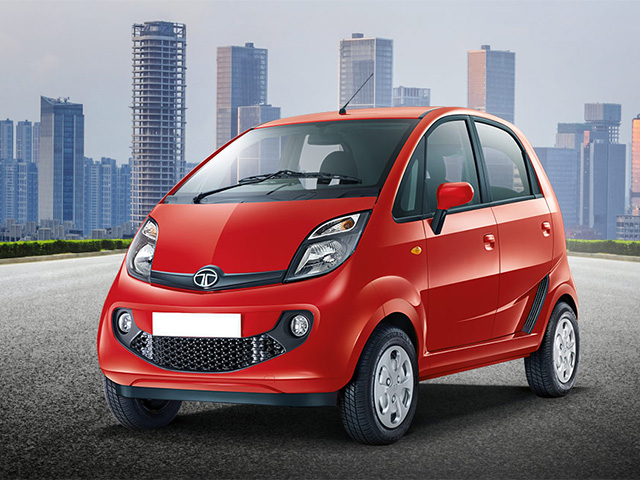
As of now, we don’t know the exact specifications of the Tata Nano Electric, but it’s speculated that the car will be powered by a 48-volt electric motor and will offer a range of 200km on a single charge. It is also speculated that the Tata Nano Electric will be launched at around Rs. 5 lakh, which will make it the cheapest electric car in the Indian market. So far, judging by reports, the Nano Electric or the Jayem Neo has been spotted in Hyderabad with Ola’s stickers on it, but there’s still no concrete reports on when consumers will be able to buy it.
4. Tata Tiago Electric
The pre-production version of the Tata Tiago Electric made its debut at the Delhi Auto Expo earlier this year, featuring a liquid-cooled 85KW motor which will give the car a top speed of 135kmph. The upcoming electric car will do 0-100kmph in under 11 seconds and will offer a range of over 100km on a single charge.
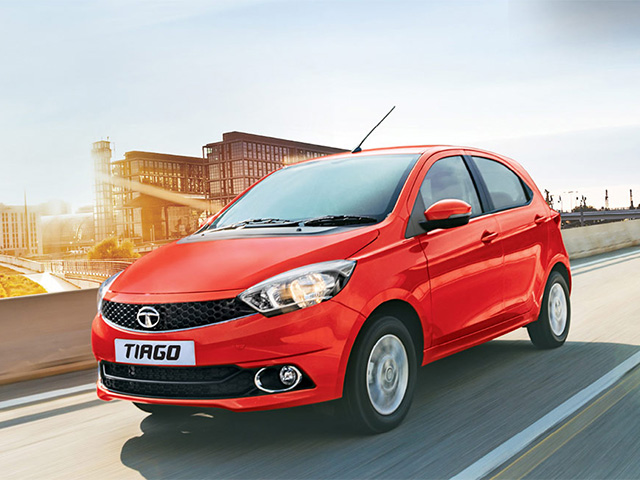
While previously, the Tata Tiago Electric was scheduled to launch sometime in 2020, the company seems to have changed its mind and the car is expected to be launched in March 2019. In terms of pricing, the Tata Tiago Electric is expected to be priced around Rs. 6 lakh.
5. Mahindra eKUV 100
Mahindra debuted the electric variant of its compact SUV, the KUV100, at the 2018 Auto Expo last year. The Mahindra eKUV is powered by a 30KW motor, the same motor which powers Mahindra’s eVerito sedan, and is expected to have a range of 140km. Pawan Goenka, the managing director of Mahindra & Mahindra has confirmed that the all-electric version of its entry-level offering, the KUV100, will go on sale in mid-2019.
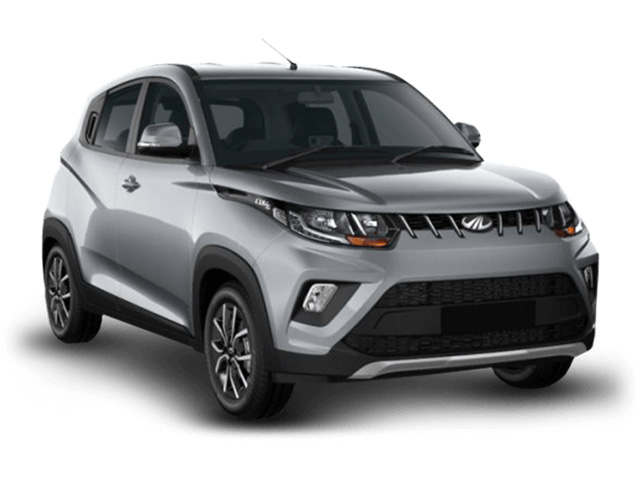
Apart from that the company has not made details public. That being said, the price of this car has been speculated and it’s rumored to launch at around 8 lakhs.
6. Tata Altroz EV
One of the newest electric vehicle announced by Tata is the “Tata Altroz” which is said to be released by the end of 2020. In fact, Tata has already released a footage of test-drive of Altroz. That said, the car is complete camouflaged so we don’t have any idea as to what we can expect in the looks department. One thing to note here is that Altroz will be released in both fuel and electric variants so we don’t now which model was being tested.
People who are familiar with the car will remember that the car was first unveiled in the 2019 Geneva Motor show. Altorz is based on Tata’s ALFA architecture (Agile Light Flexible Advanced) which is company’s latest car architecture which aims at making cars agile, versatile, and advanced. The company has not released any details about its specs or pricing so you will have to wait it out. We do know that the Altroz EV is set to release sometime in 2020.
7. MG eZS
MG eZS is an electric SUV by MG Motor (Morris Garages), which the company is planning to release in India by the end of 2019 or early 2020. When launched, this will only be the second vehicle released by MG Motor in India. The company showcased the MG eZS back in April 2019 and has promised that it will have a range of 300 kms on a single charge.
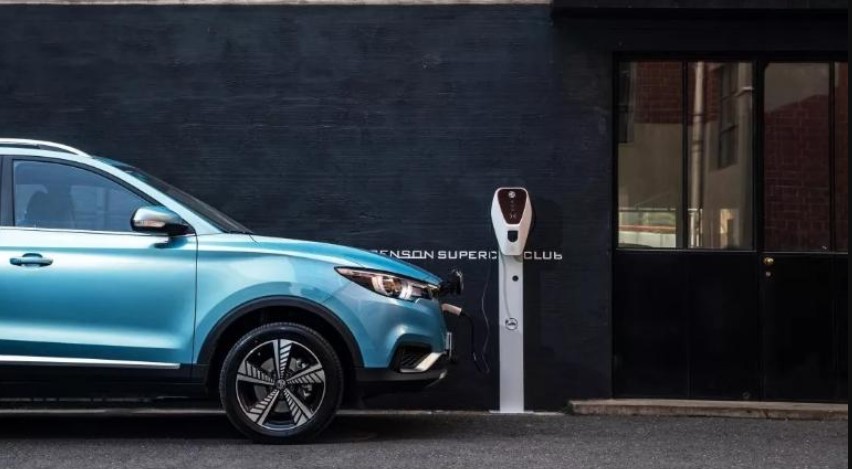
While MG Motor has not revealed any specs about the car, it has said that it will be an internet connected car and will receive over the air updates just like its MG Hector SUV which was the vehicle with which MG Motor entered India. The company has also promised to increase its sales and service locations to 120 by the end of the year which should make it easier for potential buyers to consider the new car.
One good thing about the MG eZS is that MG Motor will be manufacturing the car in India at its manufacturing facility in Halol, Gujarat. This will result in lower costs to consumers. That being said, we have know information about the specs or pricing of the vehicle as of now. But it’s definitely an electric car that you should keep an eye out for.
8. Nissan Leaf / Nissan Leaf e+
Nissan Leaf is the best selling electric car in the world and the company is now bringing it and the updated Nissan Leaf e+ models to India. The new updated Nissan Leaf e+ model not only brings a higher capacity battery pack but also a more powerful motor. The Nissan Leaf has a 40 kWh battery which offers a range of up to 270 km on a single charge while the Nissan Leaf e+ has a 65 kWh battery that should cover ~385 km before needing a charge.
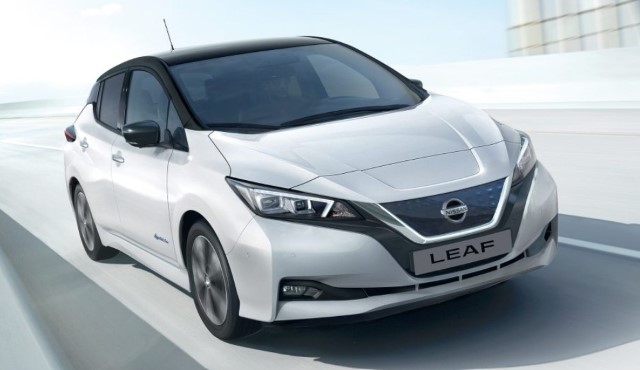
Both models come with Nissan’s Intelligent Mobility feature that improves the car’s safety awareness. It brings features such as forward collision monitoring, blind-spot monitoring, bird’s eye monitoring of the car, driving assistance, and more. Overall, both these cars are great and should spurt the growth of electric cars in India. The company is planning to launch the original Nissan Leaf model first which then will be followed by the upgraded model. The pricing will start around 23 lakhs and will go up to 35 lakhs depending on make and model.
9. Maruti Wagon R EV
Maruti, the biggest card brand in India, is planning to launch fordable electric cars in India. While most of the electric cars unveiled for India cost around 20 lakh mark, Maruti is planning to launch its Wagon R EV at a starting price of INR 10 lakhs. While, this is not cheap when compared to its petrol version which starts around 4.5 lakh, it is significantly cheaper than the competition.
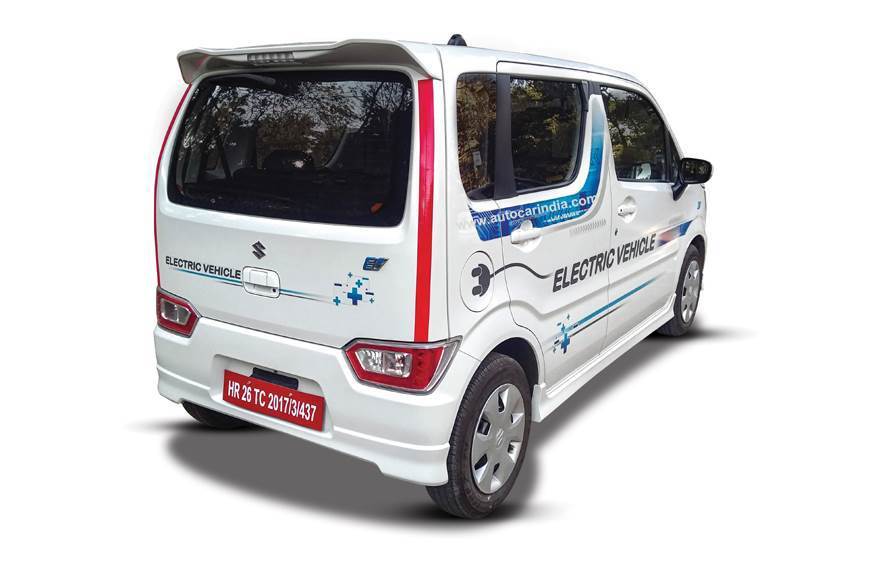
Talking about the car’s features, the Wagon R electric hatchback is supposed to have a real-world range of about 130 km. The car is also expected to come with fast-charging functionality. The car was supposed to launch in 2020, however, the company has now postponed the launch to 2021. Maruti has attributed the delay to various factors with the unavailability of electric chargers on road being one of them.
10. Jaguar I-Pace
Talking about the premium electric cars, Jaguar I-Pace is one of the most anticipated electric cars to come to India. Despite being an electric car, the Jaguar I-Pace brings all the design excellence and creature comforts that the brand is know for. Jaguar I-Pace is an SUV which brings a great combination of performance and luxury. When it comes to range, Jaguar I-Pace delivers with a range of 385 km.
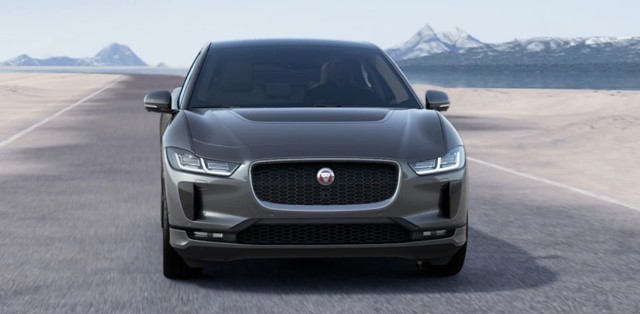
You can charge the vehicle at home with ease. A normal 32 amp AC charger can fully charge the car in about 13 hours. The car also supports fast charging, so you can cut down the charging time by using a faster charger. A typical 50 KW DC rapid charger can charge the batteries from 0-80% in 85 minutes. Talking about the motor, it’s powerful. The car can go from 0 to 60 miles an hour in just 4.5 seconds.
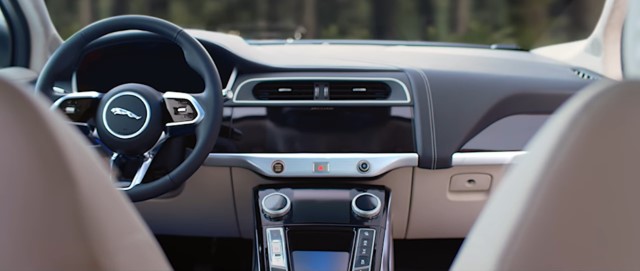
The car features a panoramic glass ceiling which gives you an incredible view and helps keep the temperature optimized. There’s a 10-inch touch screen which offers features like navigation, controls, climate control, and more. There’s also a screen just in front of the wheel allowing the driver to monitor speed and navigation without having to look to the side. Finally, Jaguar I-Pace also supports over the air updates which means you will keep getting new features.
All these features are going to cost you a lot. The Jaguar I-Pace is supposed to launch in 2020 with a starting price tag of 50 lakh. You can check out more details by clicking on the link below.
Hybrid Cars Available in India (January 2020)
While there aren’t many all-electric options in the country to choose from, if you’re looking to buy a ‘greener’ car then you can go for one from the vast selection of hybrid cars available in the market today. Here’s a list of all the hybrid vehicles available in the country right now:
1. Maruti Suzuki Ertiga SHVS
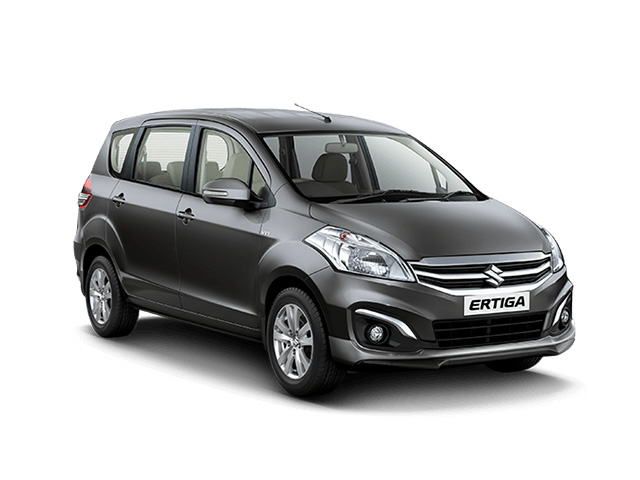
The Maruti Suzuki Ertiga SHVS is a mild hybrid variant of the company’s Ertiga MUV which makes use of Maruti’s smart hybrid vehicle system (SHVS) to assist the 1.2-liter diesel engine while the car starts to move and regenerates power when the car is coasting, braking or idling. The SHVS system implemented in the Ertiga increases the car’s mileage, while decreasing the overall carbon footprint by a small fraction.
Price: Rs. 9.58 lakh (ex-showroom Delhi)
2. Toyota Camry Hybrid
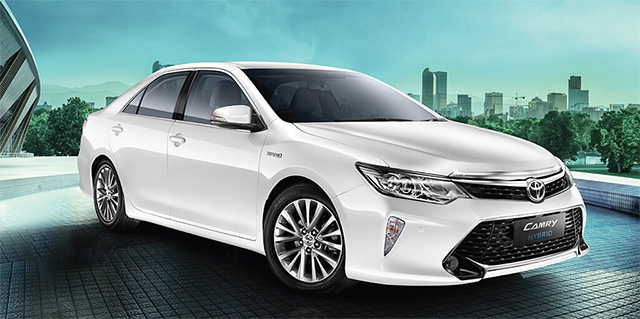
The Toyota Camry Hybrid is a luxury sedan from the Japanese manufacturer which is powered by a 2.5-liter four-cylinder petrol engine, coupled with a 6.5Ahr Nickel-metal hydride battery pack. The hybrid system on the Camry features a permanent magnet synchronous motor rated at a max voltage of 650V, which can deliver a maximum output of 151kW in the Eco and EV modes. The hybrid system reduces fuel consumption and increases the car’s mileage to 19.16kmpl, which is pretty great for a luxury sedan.
Price: Rs. 37.22 lakh (ex-showroom Delhi)
3. Toyota Prius
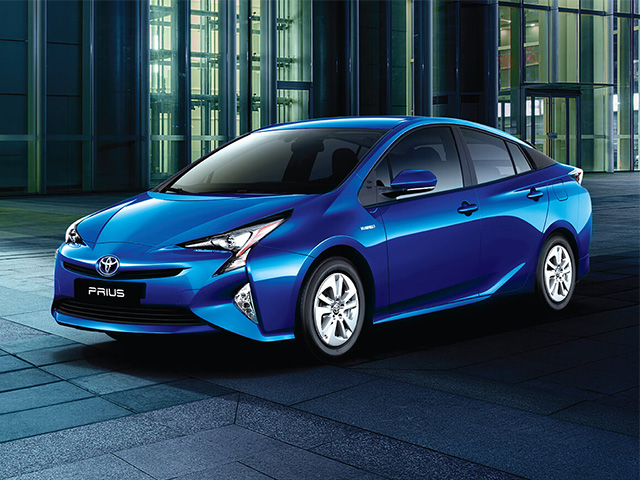
One of the best selling hybrids in the world, the Toyota Prius, is also available in the Indian market. Much like the Prius sold in the international markets, the Indian variant is a four-door coupe with a sloping roofline and a futuristic design. The car is powered by a 1.8-liter four cylinder petrol engine paired with a permanent magnet synchronous motor which offers a max output of 53kW. The motor is powered by a 6.5Ah Nickel-metal hydride battery which assists the internal combustion engine to increase mileage and decrease the car’s carbon footprint. Thanks to the hybrid system, the Toyota Prius offers an extended mileage of 23.91kmpl, which results in greater savings on fuel costs.
Price: Rs. 45.09 lakh (ex-showroom Delhi)
4. Lexus ES 300h
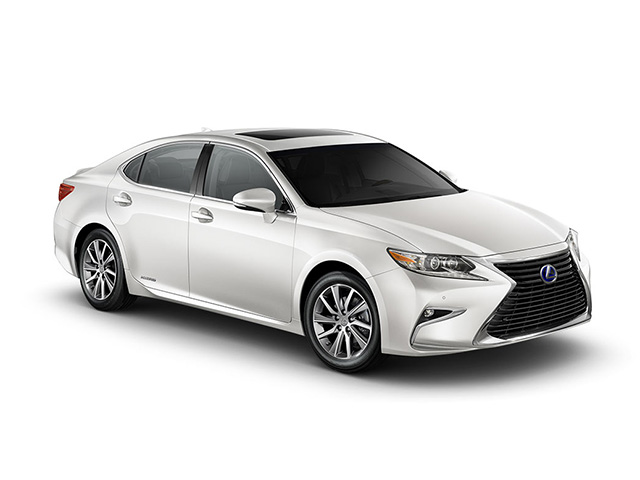
The Lexus ES 300h is a mid-size luxury sedan which is powered by a four cylinder 2.5-liter petrol engine, coupled with a permanent magnet synchronous motor and a sealed nickel-metal hydride battery which offers a total max output of 151kW. The highly efficient hybrid system on the Lexus ES 300h reduces its CO2 emissions to just 132g/km, offering a mileage of 17.8kmpl. The Lexus ES 300h is a regenerative hybrid, which charges the battery while the car is braking, coasting or idling, and utilizes the power from the battery to assist the petrol engine.
Price: Rs. 59.46 lakh (ex-showroom Delhi)
5. Lexus LS 500h
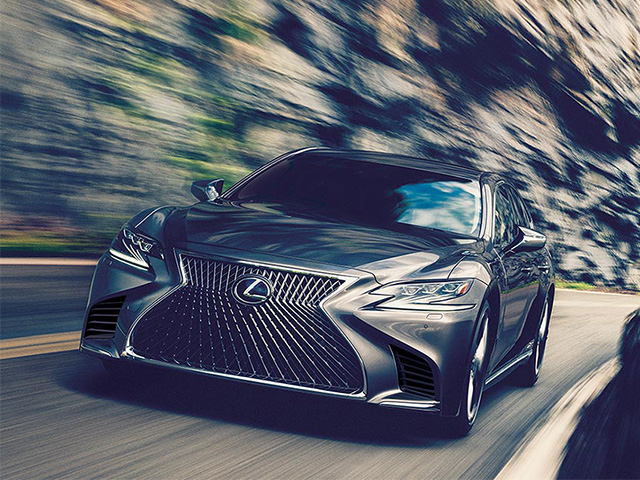
Unlike the ES 300h, the Lexus LS 500h is a full-size premium sedan which is powered by a 3.5-liter V6 petrol engine coupled with two electric motors which power the car at the same time to offer instant torque and surprising acceleration. At low speeds, the EV drive mode on the LS 500h makes use of the electric motor exclusively to offer a silent and zero-emission drive. The battery on the LS 500h charges using a regenerative braking system, which produces power when the car is braking or decelerating. As expected, the hybrid system improves the car’s mileage to 15.4kmpl, which is pretty great for a car of this caliber.
Price: Rs. 1.82 Crore (ex-showroom Delhi)
6. Lexus RX 450h
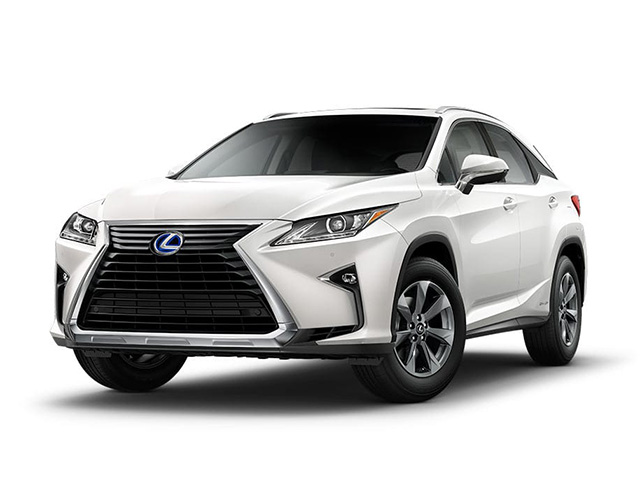
The Lexus RX 450h is a mid-size luxury crossover which offers the comfort of a sedan in the body of a compact SUV. The RX 450h is powered by a 3.5-liter V6 petrol engine, augmented by the Lexus Hybrid Drive system which draws power from both the electric and petrol motors at the same time. The hybrid system on the RS 450h features two permanent magnet synchronous motors offering a max output of 123kw (front) and 50kW (rear) which drain a nickel-metal hydride battery rated at 288V. The efficient hybrid system on the RX 450h gives the car a mileage of 18.8kmpl while reducing CO2 emissions to just 122g/km.
Price: Rs. 1.29 Crore (ex-showroom Delhi)
7. Lexus NX 300h
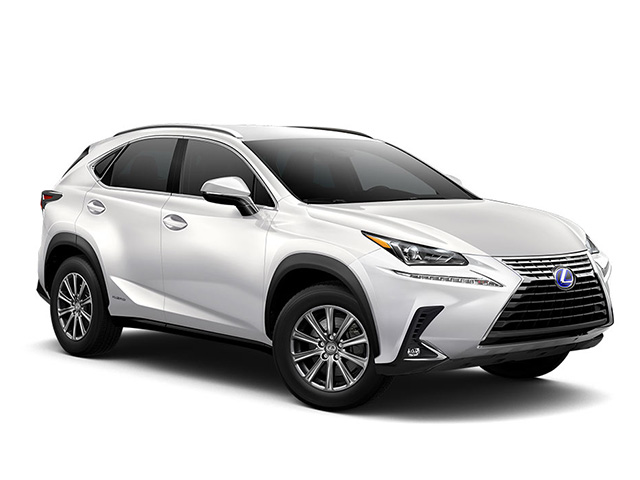
Another great hybrid offering from Lexus is the NX 300h compact luxury SUV which is powered by a 2.5-liter petrol engine coupled with two permanent magnet synchronous motors that offer a max output of 105kW (front) and 50kW (rear). Much like the rest of the Lexus hybrids, the NX 300h also makes use of a nickel-metal hydride battery which has 204 cells. The regenerative hybrid system on the Lexus NX 300h assists the engine and improves the car’s mileage to 18.3kmph, while reducing CO2 emissions to 139g/km.
Price: Rs. 54.78 lakh (ex-showroom Delhi)
8. Honda Accord Hybrid
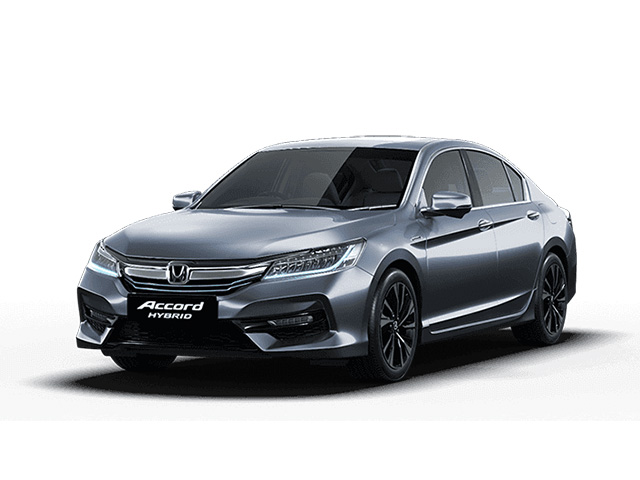
The Honda Accord Hybrid features a Sport Hybrid iMMD (Intelligent Multi-mode Drive) two motor hybrid system coupled with a 2-liter i-VTEC engine. The electric motors in the Accord Hybrid are powered by a 1.3kWh lithium-ion battery which can deliver a total output of 215 PS and improves the overall fuel efficiency to 23.1kmpl. The Accord Hybrid also makes use of a regenerative system to charge the battery when the car is decelerating, braking or idling, and makes use of the electric motor to give it instant torque as it starts moving from idle.
Price: Rs. 43.21 lakh (ex-showroom Delhi)
9. Volvo XC90 T8 Plug-In Hybrid
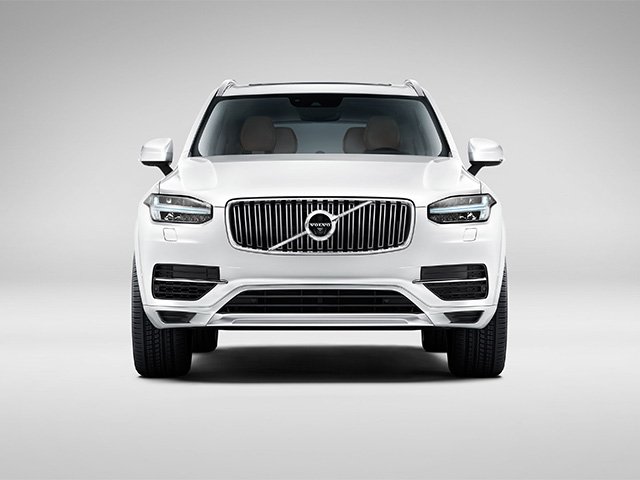
The Volvo XC90 T8, unlike most other hybrids on this list, is a plug-in hybrid which you can charge much like you would charge an all-electric car. The XC90 T8 is powered by a 2-liter four cylinder petrol engine along with an 87hp electric motor that offer a combined output of 407hp. The car has an all-electric range of 40km and can reach from 0-100kmph in just 5.8 seconds. The battery on the Volvo XC90 T8 can be charged using a 110V or a 240V power outlet, with the former charging the battery in 12 hours and the latter only taking 6 hours to reach 100 percent charge.
Along with the car, Volvo will be providing users with two charging stations at no additional cost which can be installed in their preferred locations. The dedicated charging stations are capable of charging the battery in just 2.5 hours and the XC90 T8 also has a regenerative braking system to charge the battery.
Price: Rs. 96.65 lakh (ex-showroom Delhi)
10. BMW i8
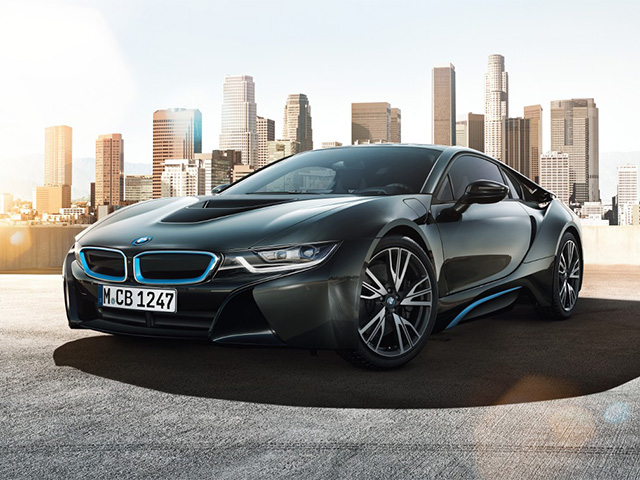
The BMW i8 is a plug-in hybrid sports car which is powered by a 1.5-liter internal combustion engine which powers the rear axle paired with an electric motor that generated 131 PS of power for the front axle. Thanks to the highly efficient plug-in hybrid system, BMW claims that the i8 can offer a fuel efficiency of 47.45kmpl, while limiting CO2 emissions to 50.36g/km. The exceptional fuel efficiency is also a result of the i8’s body, which is made up of a light carbon fiber. The BMW i8 can accelerate from 0-100kmph in just 4.4 seconds and can reach a top speed of 250kmph.
The BMW i8 has a maximum range of 550km on a full tank, but it can also go up to 36.08 km running exclusively on the electric motor. The battery in the BMW i8 can be charged up to 80 percent in just 2.5 hours using a 12A charger and in just 2 hours using a 16A charger.
Price: Rs. 2.62 Crore (ex-showroom Delhi)
SEE ALSO: Public Transport Expected To Drive Mass Electric Vehicle Adoption in India
Electric Cars: Paving the Way For a Cleaner Future
Even though it may take some time for India to go all-electric, it’s an accepted truth that electric vehicles are the future and the country needs to change in order to preserve natural resources and work towards a cleaner, greener future for the coming generations. While currently there aren’t many all-electric options to choose from, the Indian automobile landscape is swiftly changing and we expect more automobile manufacturers to release all-electric cars in the market. Until then, if you’re in the market for a new car, you can choose from the aforementioned list of electric or hybrid cars and do your part to ensure that the future isn’t all that bleak.